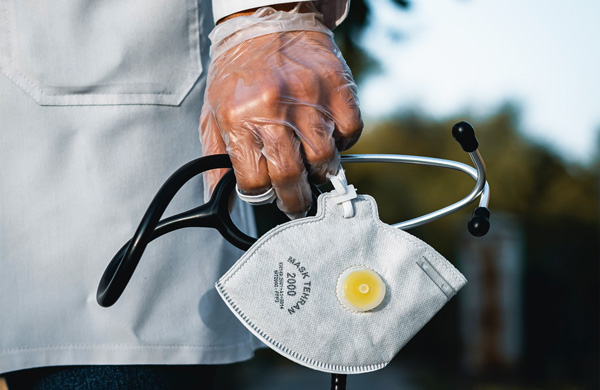By Barbara DiPietro, PhD, Senior Director of Policy
It’s summer and it’s hot, so let’s take a break from the usual focus on the things that are killing us (literally and figuratively) and instead focus on three things happening in the Medicaid space that are advancing life-affirming policies!
1. New Code for Street Medicine
It’ll soon be easier for all states to deliver medical care on the street because CMS just issued a new “place of service (POS) code” specific to street medicine. This code will be operational starting October 1, 2023 and is distinct from service codes for mobile units, or services in homeless shelters, in FQHCs, or at public health clinics (to name a few). The code allows services to be billed to Medicaid from “a non-permanent location on the street or found environment, not described by any other POS code, where health professionals provide preventive, screening, diagnostic, and/or treatment services to unsheltered homeless individuals.”
The reason this is awesome — according to David Peery, Executive Director of the Miami Coalition to Advance Racial Equity: “Street Medicine saves lives, providing vital health care services to a vulnerable population of unhoused persons who otherwise lack access to health care.”
This code legitimizes street medicine as a specific discipline that is a recognized part of the health care system nationwide. Soon, street medicine visits can be uniquely identified for purposes of managed care contracts with different rates and scopes of work as well as to allow for out-of-network referrals to be approved more easily. Also, the ability to uniquely identify street medicine visits (and patients) will allow better data collection and a greater understanding of the needs of people experiencing unsheltered homelessness. Ultimately, this code can also help inform the creation of a more equitable care model.
2. “Re-entry” Waivers from Jails/Prisons
In April 2023, CMS released a State Medicaid Director Letter providing guidance on a new Medicaid Reentry Section 1115 Waiver Demonstration Opportunity that would allow state Medicaid programs to cover a targeted set of services during the period immediately preceding release from prison or jail. The goal of this waiver opportunity is to increase continuity of coverage and care, access to services, coordination between correctional and community systems, investments in health care to improve quality of care, and improve post-release outcomes. Eligible individuals are people who will be leaving state prisons, jails, and youth correctional facilities. Services can be provided for up to 90 days prior to a person’s expected release date. CMS stipulates three benefits that states must provide: case management to address physical, behavioral health needs and health-related social needs (HRSN); medication-assisted treatment (MAT) for substance use disorders; and a 30-day supply of prescription medications upon release. States may propose benefits above and beyond this minimum.
California and Washington State have already requested this waiver and been approved, while 13 additional states have proposed waivers to CMS to cover pre-release services for adults: Arizona, Kentucky, Massachusetts, Montana, New Hampshire, New Jersey, New Mexico, New York, Oregon, Rhode Island, Utah, Vermont, and West Virginia (as of June 2023).
Also — in case you missed it — last year’s budget bill out of Congress (the Consolidated Appropriations Act of 2023) requires all states starting Jan. 1, 2025, to cover screenings, service referrals, and case management for children children and youth who are incarcerated for 30-days prior to their release. It also gives states the option to offer Medicaid-covered services to juveniles who are incarcerated prior to adjudication.
The reason this is awesome: For the first time, CMS is authorizing more Medicaid-reimbursable services to those “behind the wall”—and requiring screenings/referrals/case management for youth in all states. As we know, Medicaid is often terminated upon incarceration and jail/prison health care is frequently woefully inadequate to meet the needs of a population with high rates of medical and behavioral health conditions. Hopefully this step starts a process of better integrating jail/prison health with better health outcomes. The fact that many states have already applied for this waiver is heartening!
3. Washington State’s New Medicaid Waiver
Washington just received federal approved for a new five-year waiver that includes continuous eligibility for postpartum individuals, presumptive eligibility for home and community-based services, contingency management, supports for community reentry, and services addressing health-related social needs (HRSN), while continuing initiatives related to continuous eligibility for children, eligibility for alternative long-term services and supports, existing services addressing HRSN, and treatment for substance use disorder (SUD) and serious mental illness (SMI). All this AND medical respite care, short-term post-hospitalization housing, and six months of short-term housing.
The reason this is awesome—according to Rhonda Hauff, CEO of Yakima Neighborhood Health Services: “The Washington Medicaid Transformation Project, affectionately called “MTP 2.0,” provides greater opportunities for health centers to support and improve the health of people experiencing homelessness specifically providing Medicaid coverage for medical respite care (what we once considered an unreachable dream!), housing supports, and even housing deposits and short-term rent subsidies. It allows us to work upstream by supporting people at risk of homelessness before they become unsheltered. The expansion of Supportive Housing and Supported Employment (Foundational Community Supports), both evidence-based models that demonstrate improved health and quality of life, will hopefully encourage more health centers to integrate housing with primary health care services.”
Note: Washington is part of a wave of states requesting Medicaid reimbursement for medical respite care. They also join Arizona and Oregon in getting permission to use Medicaid funding for six months of rent.



